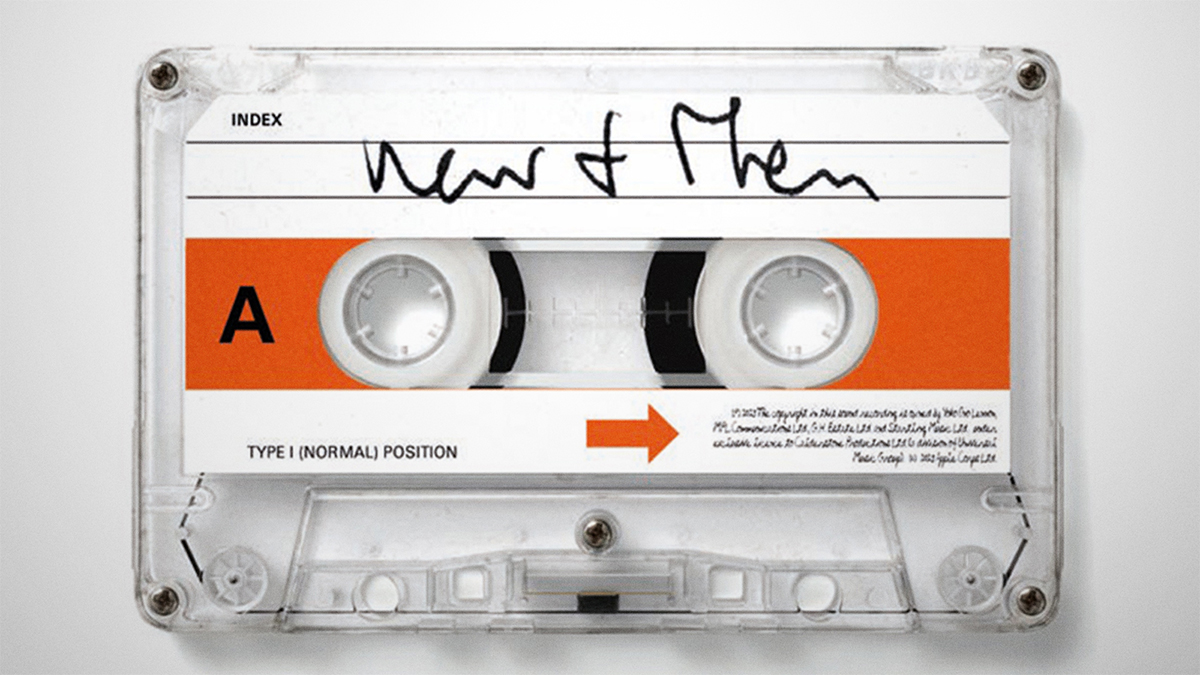“To me, it's kind of milking a dead cow”: Beatles engineer Ken Scott on the release of Now and Then, the band’s final single, in 2023
“It's more to do with the fact that I know that George was not particularly fond of finishing it off back in the day,” he says

Legendary Beatles studio engineer Ken Scott, who worked with the Fab Four between 1964 and 1968, has been giving his opinion on the band’s final single, Now and Then. And it’s fair to say that it isn’t entirely positive.
Released in 2023, Now and Then began life as a rough demo by John Lennon. A cassette of this recording was given to Paul McCartney by Yoko Ono, Lennon’s widow, after his death, but the remaining Beatles were unable to finish it because it was deemed impossible to separate the piano and vocal parts satisfactorily.
Thanks to technology developed by director Peter Jackson for his Get Back TV series, though by 2022 the two parts of the demo could be split, enabling McCartney and remaining surviving Beatle Ringo Starr to develop Now and Then further.
When asked about the song by Headliner magazine, it seems that Scott initially tried to dodge the question. “So you want to talk about David Bowie, do you? [Scott produced The Rise and Fall of Ziggy Stardust and the Spiders from Mars with Bowie in 1972]” he’s quoted as saying, seemingly in an attempt to change the subject.
Despite this apparent reticence, he continues: “That's what I think about it,” says Scott. “It's more to do with the fact that I know that George [Harrison] was not particularly fond of finishing it off back in the day.”
Scott is referring to the time, back in 1995, when Harrison, Starr and McCartney had originally attempt to resurrect Now and Then, but had given up after - according to McCartney - Harrison dismissed the original demo recording as “fucking rubbish”.
“George didn’t like it,” McCartney told Q magazine in 1997. “The Beatles being a democracy, we didn't do it.”
Want all the hottest music and gear news, reviews, deals, features and more, direct to your inbox? Sign up here.
It’s since been suggested by Olivia, Harrison’s widow, that George’s problem was with the technical quality of the demo recording, not the song itself. Scott, though, has his own opinion on the release of Now and Then.
“To me, it's kind of milking a dead cow,” he explains. “It's putting something together to sell more records, kind of thing. It's that, ‘If there are differences between the mono and stereo, we may be able to sell twice as many records [remastered mono and stereo versions of the Beatles’ albums were released in 2009]; If we put out a new single that we put together, it doesn't matter if it's not quite as good as our old stuff, but it will boost the interest again, so maybe we'll sell more records.’”
Despite seemingly having an aversion to some of the Beatles’ more recent releases, Scott remains positive about his time working with the band, and suggests that this relationship with them was actually more important than his technical abilities.
“It's how you get on with people, because they've got to trust you,” he says.
Check out the full interview - in which Scott discusses his work on some of The Beatles most iconic songs and albums - on the Headliner website.



I’m the Deputy Editor of MusicRadar, having worked on the site since its launch in 2007. I previously spent eight years working on our sister magazine, Computer Music. I’ve been playing the piano, gigging in bands and failing to finish tracks at home for more than 30 years, 24 of which I’ve also spent writing about music and the ever-changing technology used to make it.

